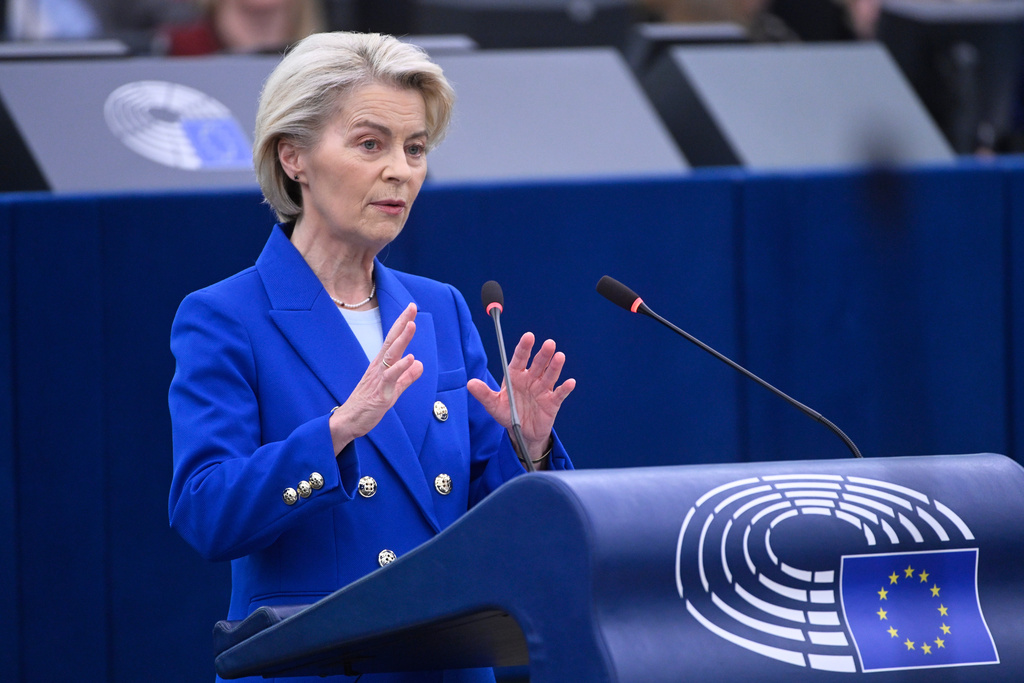EU Approves 19th Sanctions Package Targeting Russia’s Energy, Finance and Tech Sectors

The European Union has officially adopted its 19th package of sanctions against Russia, tightening restrictions across energy, finance, and high-tech sectors.
The Gaze reports this, referring to European Pravda.
The decision was finalized on Thursday morning, October 23, through a written procedure, according to the Danish presidency of the Council of the EU.
“We are pleased to confirm that the Council has adopted the 19th package of sanctions,” the presidency said in a statement.
The move followed last-minute approval from the final member state that had held reservations. Denmark confirmed that it received the green light late Wednesday night, allowing the package to be formally endorsed by 8 a.m.
Energy Measures
The new sanctions significantly expand the EU’s energy embargo, introducing a phased ban on Russian liquefied natural gas (LNG) imports – within six months for short-term contracts and by January 1, 2027, for long-term agreements.
The timing aligns with the European Commission’s RePowerEU strategy to eliminate dependence on Russian fossil fuels.
The package also tightens restrictions on two of Russia’s leading oil companies and places sanctions on 117 additional tankers in Moscow’s so-called “shadow fleet,” bringing the total number of blacklisted vessels to 558.
Financial Restrictions
Among the measures is a five-year ban on providing insurance for aircraft and ships that were previously used by Russia and later sold to third countries. The EU has also imposed a complete ban on transactions with five major Russian banks, effectively cutting them off from the European financial system.
This is accompanied by an expansion of existing restrictions on Russian electronic payment systems, including the state-backed Mir network, which has been increasingly used to bypass Western sanctions.
The package further widens the scope of financial restrictions to neighboring states and global intermediaries. Four banks in Belarus and Kazakhstan have been added to the sanctions list, while new prohibitions extend to five banks, one cryptocurrency exchange, and two oil-trading companies operating across Tajikistan, Kyrgyzstan, Paraguay, the United Arab Emirates, and Hong Kong.
In addition, the EU has introduced a new prohibition on signing contracts between European businesses and nine Russian “special economic zones,” including a full ban on cooperation with the Alabuga industrial complex and Technopolis Moscow – two key hubs for high-tech and defense-related production.
To further tighten control over financial flows, the EU has enacted a complete ban on cryptocurrency services for Russian citizens, residents, and entities.
Export Controls and Anti-Evasion Measures
The EU has also expanded export bans to limit Russia’s access to microchips, dual-use technologies, and industrial materials such as rubber, salt, and construction goods.
Forty-five additional companies, including entities in India, Thailand, China, and Hong Kong, have been sanctioned for helping Moscow bypass previous restrictions, many of them tied to drone production and defense technologies.
The EU will also broaden its criteria for sanctioning foreign ports and logistics hubs involved in transporting drones or missiles to Russia or helping circumvent oil restrictions.
Diplomatic and Humanitarian Measures
A new mechanism will restrict the movement of Russian diplomats within the EU, with a three-month transition period.
Additionally, the EU has introduced new criteria to sanction individuals involved in the abduction and deportation of Ukrainian children from occupied territories.
The sanctions further expand bans on artificial intelligence and advanced computing services, as well as commercial space activities in Russia.
Any remaining services not already prohibited will now require prior authorization. European operators are also barred from offering tourism-related services in Russia.
EU foreign policy chief Kaja Kallas had predicted earlier that the package would be adopted on October 23 during the European Council meeting.
The approval was delayed due to Slovakia’s objections related to energy pricing and internal combustion engine regulations, and Austria’s push to unfreeze some Russian assets to offset penalties imposed on Raiffeisen Bank by Moscow – a demand that was ultimately rejected.
Read more on The Gaze: The EU’s 19th Sanctions Package: A Strategic Offensive Against the Kremlin’s War Machine